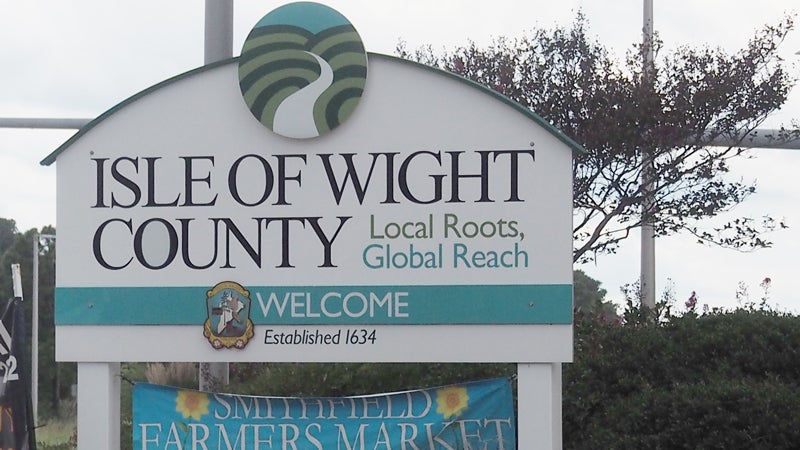Surry judge tosses “trivial” Claremont FOIA lawsuit
Published 1:45 pm Wednesday, April 6, 2016
By Matt Leonard
Staff WriterSURRY — A Surry County Circuit Court judge ruled in favor of the town of Claremont, its mayor and three other town officials last week in a Freedom of Information case the judge and defense attorney called “trivial.”
At stake — $10.92.
Donna Skinner, a member of Claremont’s Town Council, brought the suit last year against the town, its mayor, vice mayor, town clerk and a fellow council member after claiming to have had her rights under the Freedom of Information Act violated.
After an eight-hour, document-laden trial, Judge Nathan Curtis Lee dismissed all three counts brought against the town and its officials. Lee said the town had tried its best to work within the legal bounds of FOIA considering Skinner “was overwhelming the town with FOIA requests.”
{mprestriction ids=”1,2,3,4,5,6″}
Skinner and her lawyer, Andrew Bodoh, were asking the court to repeal the town’s current FOIA resolution, order it to comply with Virginia FOIA law and have the town return all funds she had paid for requests — a total of $10.92.
The plaintiffs argued Skinner’s requests for information were either not responded to in a timely manner, not responded to at all and sometimes the responses were not written, as required by state law. They also laid out a case saying the town was overcharging for copies of documents and overstating the time the town clerk spent on requests.
This all led Bodoh to say in his closing argument that the town had shown and admitted to a pattern of abuse when it came to FOIA law.
The documents in the case included 15 information requests Skinner sent to either the town or various town officials. They asked for information, including a list of supplies a former town employee took after leaving, information on the town selling water from a fire hydrant and requesting the town to send her the minutes of meetings every month.
The defense argued that on various occasions the requests sent by Skinner included information the town didn’t have, like the list of supplies taken by former employees. Claremont Mayor Louise Hansch testified that she had approached Skinner on multiple occasions and spoke with her about requests, including the sale of water.
Skinner testified she did not recall such conversations ever taking place.
“I don’t remember that,” Skinner said while being cross-examined by the defense counsel, Jennifer Lee Parrish, who asked about conversations with Hansch.
Hansch and Town Clerk Melissa Dudney both said they had left information in response to Skinner’s requests in her town mailbox on several occasions. Skinner argued they had locked her out of the office, barring her from the mailbox. But both Dudney and Hansch said the reason Skinner was locked out was due to an incident where Skinner came into the office and pulled books from their shelves and was pulling information off of the clerk’s desk after being told to wait for a request.
Then there was the issue of the cost. Skinner and Bodoh argued it was an unfair price to pay for copies of town documents.
When Skinner first began making FOIA requests, the town didn’t have a resolution on the issue, so she was given copies for free. But when she began making a lot of requests, the town implemented a resolution passed by the town council.
The first resolution made black and white copies 50 cents a page and color copies $1. A second resolution dropped the cost of black and white copies, while raising the cost of color by 5 cents. The latest version of the town’s FOIA resolution charges 7 cents for black and white copies and 22 cents for color copies.
Hansch and Dudney testified that they called surrounding localities to find out what they charge and received legal counsel when setting these prices.
Bodoh argued the 7 cent charge was too high because when the town was calculating the number of copies an ink cartridge could make they used the load of a double-pack of ink, rather than a singe cartridge — meaning the price of a copy should have averaged 3.5 cents, they argued.
Both Hansch, Dudney and Council member Brigit Jones admitted the mistake in their testimony, saying they never noticed the error until Bodoh pointed it out.
“You want government to be transparent and they came into court today and admitted they made a mistake,” Judge Lee said later.
He told both sides that the easiest thing for the General Assembly to do would be to set a flat rate for copies of documents. He said it creates issues when the law says the government can charge for the “actual cost.”
This is not the first time Skinner has sued the town of Claremont for FOIA violations. She sued the town in 2014 in General District Court and won. She was not a council member when she sued the first time for being denied certain documents by the town.
In an interview last month, Skinner said she was being denied certain documents because other people weren’t asking for them.
“The attitude that’s been displayed to me is the others aren’t asking for it, so we’re not going to give you special treatment,” she said.
After making his ruling, Judge Lee told t both sides he hoped this case would not affect the small town of Claremont and the relationship between the officials.
“You’ve got to put this behind you and move on,” the judge told the two sides before dismissing court.
{/mprestriction}




